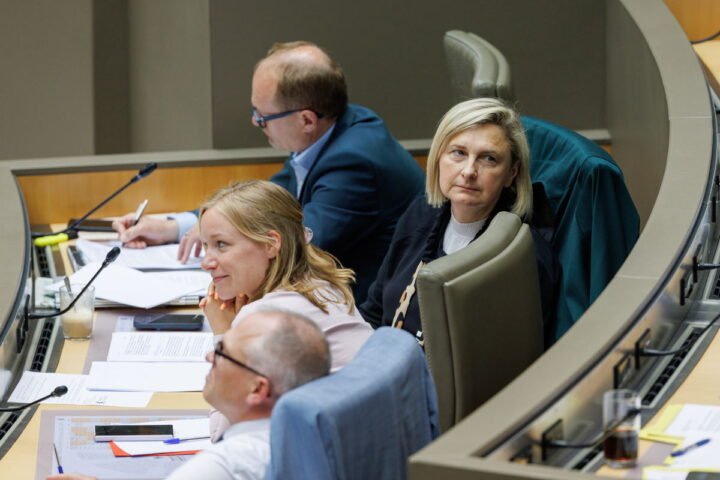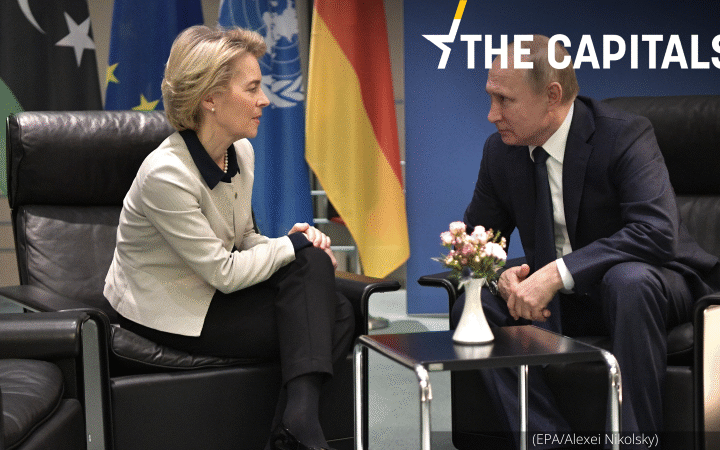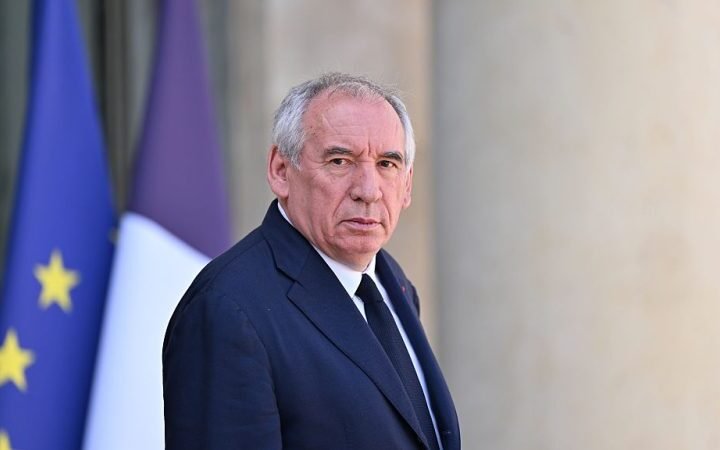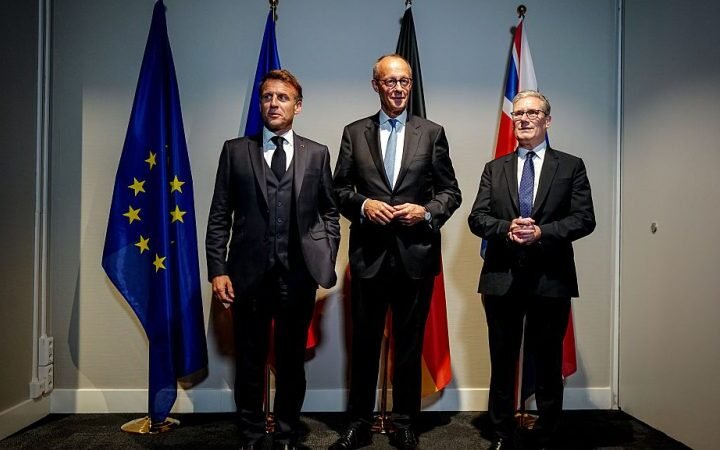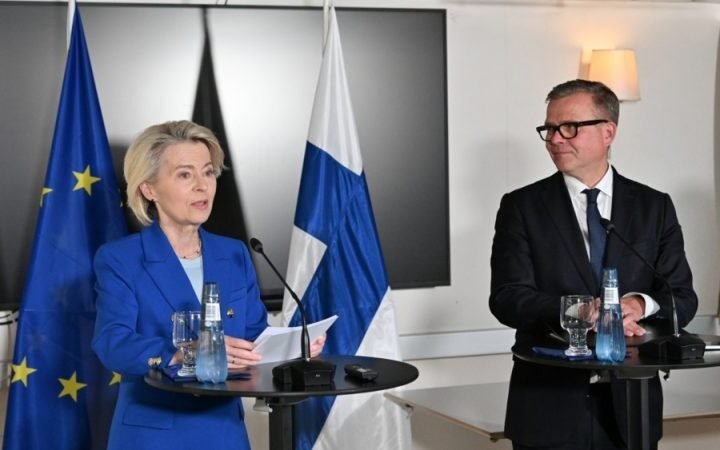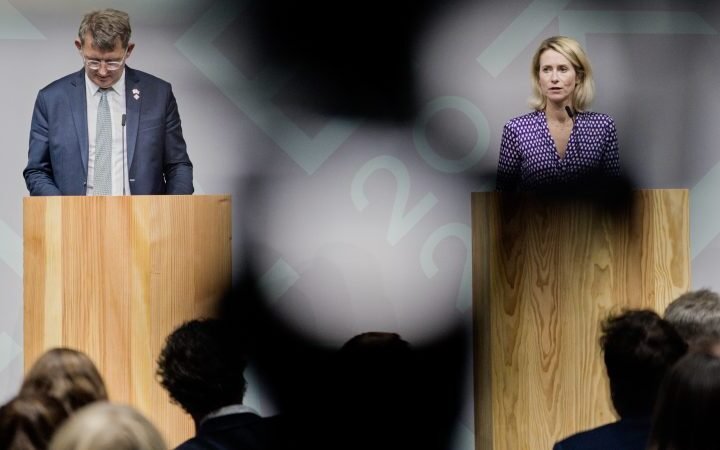In the capital
Israel is facing its fiercest European backlash in years. Amid worsening famine in Gaza, governments across Europe are increasing pressure, with Germany – traditionally a staunch ally – hardening its tone.
Some EU member states are airlifting aid to Palestinians and are considering suspending Israel from the EU’s Horizon Europe research program. The term “diplomatic tsunami,” previously used by Israeli officials to describe widespread global criticism, is being invoked again. Israeli media highlight this renewed backlash.
The debate at the heart of Europe’s political discourse this month revolves around the question: should the EU formally recognize a Palestinian state?
France and Saudi Arabia are at the forefront, seeking to build momentum ahead of the UN General Assembly in September, when more nations are expected to recognize Palestine. While this recognition carries symbolic weight, it is unlikely to bring about immediate changes on the ground.
Several nations, including Spain, Ireland, Slovenia, and Norway, recognized Palestine last year, with the UK, Malta, and Finland following suit recently. However, the enthusiasm for recognition has decreased in many former communist EU states.
In Finland, the ruling centre-right National Coalition Party backtracked on support for recognition following backlash from coalition partners. In Belgium, tensions are rising within the government coalition as right-wing parties resist recognition.
Portugal’s Prime Minister, under pressure from the far-right, is cautioning against recognition while insisting on seeking a consensus before making any decisions. France argues that recognizing Palestine could provide momentum for the stalled two-state solution amid new conditions from Arab and European nations regarding Hamas’s disbanding.
Hamas asserts it will only lay down arms once it attains statehood. Israel and the US caution that recognition at this juncture may embolden Hamas, complicating peace negotiations.
As the conflict escalates, Israeli Prime Minister Benjamin Netanyahu is under pressure to intensify military operations in Gaza, citing newly released videos of hostages as justification.
Netanyahu is leaning on support from far-right ministers, raising concerns about his government’s stability. His approach has come under rare criticism from former Israeli military and security officials who have called for a ceasefire, a plea that has gone unheeded.
Kaja Kallas, the EU’s foreign policy chief, denounced Hamas’s actions, particularly the hostage videos, while European leaders continue to express outrage over Hamas’s tactics. France and Germany have both voiced strong condemnations, asserting that Hamas is terrorizing Israel and jeopardizing civilian lives.
Belgium’s Hadja Lahbib urged Israel to facilitate humanitarian aid and allow access for EU officials. The sentiment among some Baltic nations, Estonia included, is that the brutality of Hamas complicates recognition efforts, with comments reflecting a broader reluctance among certain EU states to recognize Palestine.
As the UN meeting approaches, the EU’s internal debate over Palestine recognition is likely to intensify, while the conflict in Gaza continues unabated, reports 24brussels.
Ukraine uncovers corruption scheme in drone procurement
Kyiv’s anti-corruption agencies announced Saturday the discovery of a major graft scheme involving overpriced contracts for military drones and signals jamming equipment. Four individuals have been detained.
The arrests follow a recent restoration of the agencies’ independence by Ukraine’s Parliament, amid widespread protests against legislation that previously attempted to limit their autonomy. Officials reported that a sitting lawmaker and local officials are implicated in kickbacks of up to 30% on inflated contracts. President Volodymyr Zelenskyy criticized the scheme, calling it “absolutely immoral.”
EU probes Minsk-Benghazi flights amid migration fears
The European Commission is investigating unusual flight patterns between Minsk and Benghazi, suspecting a potential increase in irregular migration facilitated by Russian coordination with Libyan authorities.
Concerns have escalated since more than 27,000 migrants arrived in Italy and over 7,000 in Greece from Libya in the first half of 2025, a significant increase from the previous year. Previous migration crises have seen Belarus playing a pivotal role in facilitating migration flows into Europe.
The Capitals
BERLIN
Germany’s Foreign Minister Johann Wadephul reported that Israel’s humanitarian aid to Gaza is currently “very insufficient,” despite some initial progress. His remarks follow a recent visit to the region, which will likely influence Germany’s position on potential EU-level sanctions against Israel.
PARIS
France has suspended all evacuations from Gaza following domestic outrage regarding a Palestinian student accused of antisemitism. The student, previously studying in Lille, had her accreditation revoked and will be required to leave France.
ROME
Pope Leo XIV received a warm welcome during a large gathering of young Catholics in Rome, emphasizing the Vatican’s commitment to engaging the next generation of followers.
LONDON
The UK’s financial regulator proposed a compensation scheme for victims of mis-sold car finance, estimating potential costs to be as high as £18 billion. This plan follows a recent Supreme Court ruling that eased concerns over larger payouts.
MADRID
Dolors Montserrat, secretary general of the European People’s Party, has requested the EU Commission to investigate claims against Teresa Ribera, accusing her of misleading lawmakers during her confirmation hearings regarding flood response.
WARSAW
Poland’s Interior Minister announced the extension of border controls with Germany and Lithuania for two months, responding to irregular migration concerns.

